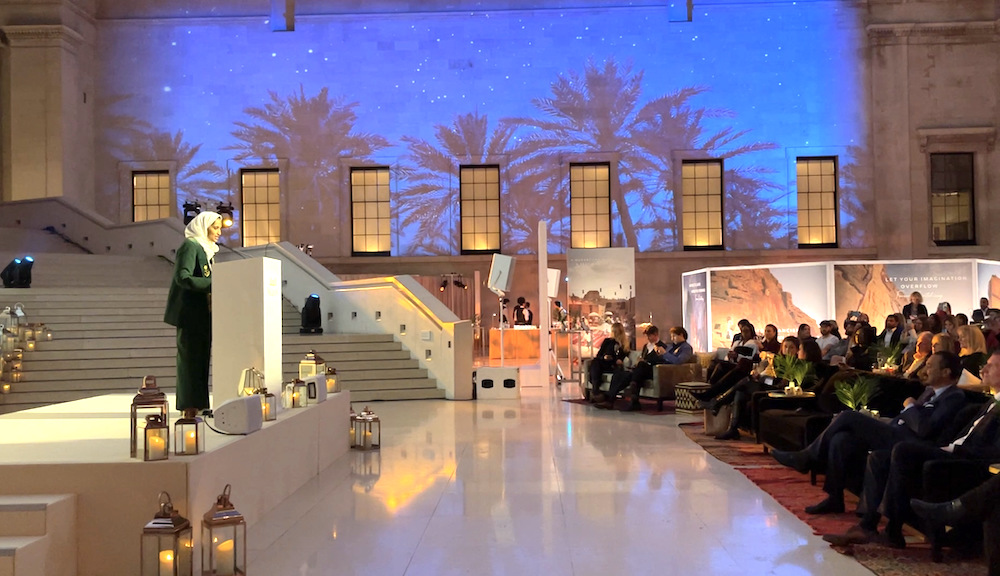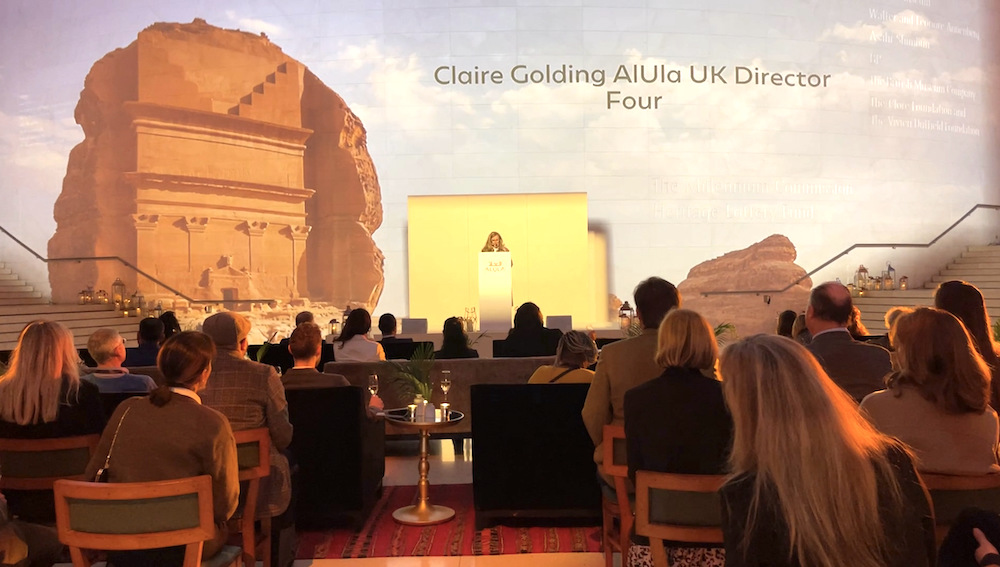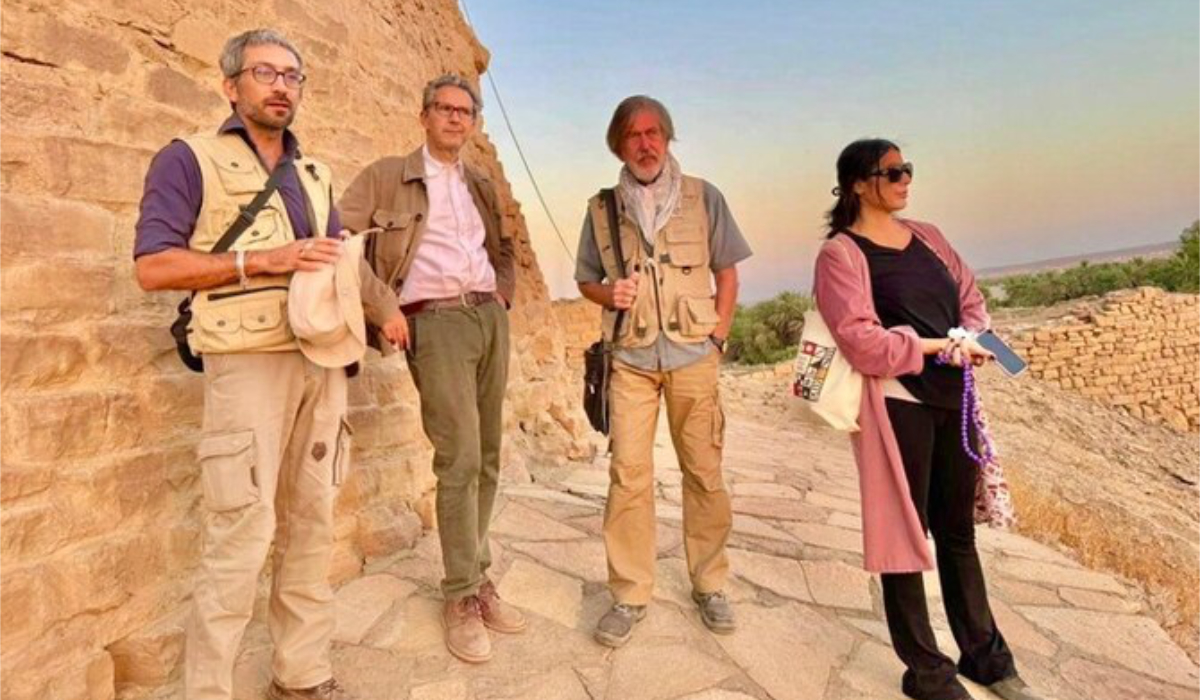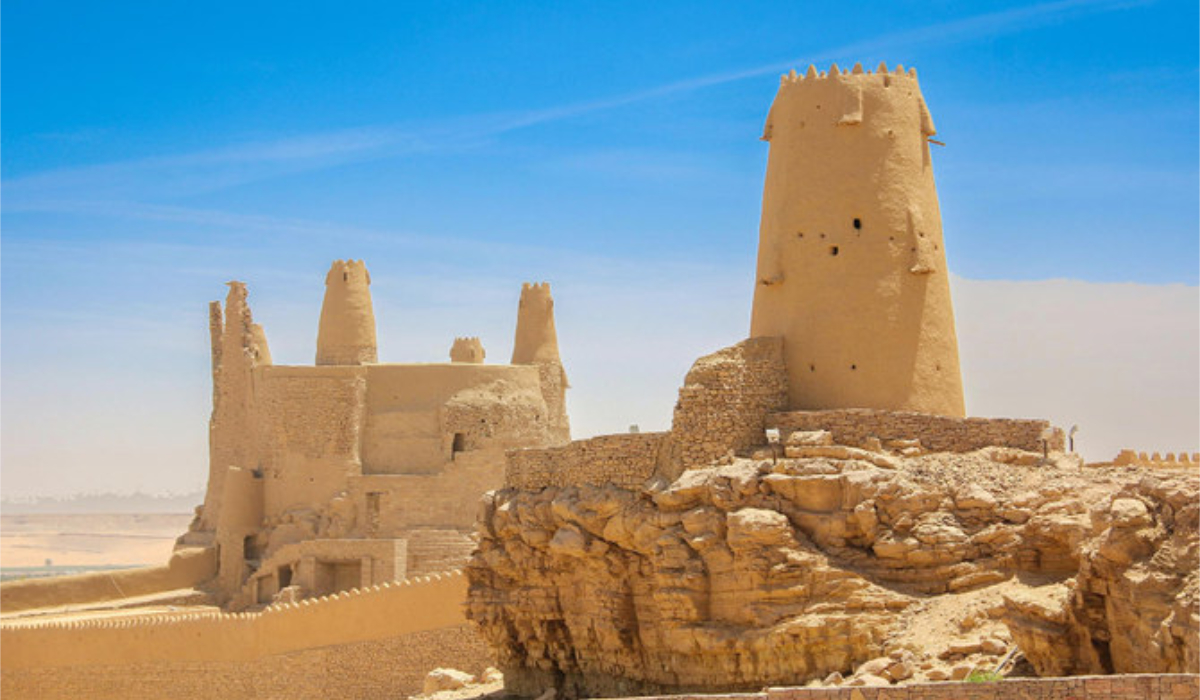LONDON: The ancient city of AlUla in Saudi Arabia is embarking on what authorities describe as its “next evolution,” as they launch the destination’s global brand image in key international markets to show the world what it has to offer.
“We’ve been very focused on the regional audience, but we’ve never had a media campaign telling our story globally and so this is the launch of that in our six key markets,” said Phillip Jones, the chief tourism officer with the Royal Commission for AlUla.
“It will be an opportunity to introduce a completely new audience to what we have to offer in AlUla.”

The commission showcased its “Forever Revitalizing” campaign during a lavish event at the British Museum in London on Wednesday. Its visit to the British capital is the third leg of a global tour that began in Dubai, moved on to Paris and will continue in New York, Mumbai and Shanghai.
“London is an interesting place to see this particular exhibition of our history and the world’s history, actually,” the Saudi ambassador to the UK, Prince Khalid bin Bandar, told Arab News.
“London is a connector of all kinds of cultures from around the world (and) is a center of art, culture, development and finance — and that’s exactly what AlUla was.
“AlUla was the center of so much that brought people around from all over the region, and was a trade destination and a trade hub for the world, like London is today. So for us, it’s really exciting to take an old trade hub and launch it in a new trade hub.”
He said very few destinations offer as many opportunities as AlUla to discover and experience something new. It is a real honor to introduce this “exciting project” to the rest of the world, he added.
“We’ve known about it for a long time, and we’re now sharing it with everyone,” said Prince Khalid. “It’s a true international historical site and it’s nice to see it take its place among the greatest tourist destinations in the world.”

In reference to the evolution of Saudi Arabia in recent years, he described as “truly remarkable” what Crown Prince Mohammed bin Salman had “managed to achieve by galvanizing our population behind all this development and change … and it’s apparent in all of these young Saudis who are here” representing the ambitions of the nation.
Jones said that when he visited AlUla for the first time he was “completely blown away by the sheer beauty of the place, the majesty of it, and the fact that it’s this treasure that we can preserve and protect and then share that story with the world.
“I’ve worked in the travel industry for 35 years and I thought I knew every destination that was important globally.”

He compared the tourism value of AlUla with that of Petra in Jordan; Petra was the capital of the Nabataean Kingdom in the 3rd century B.C., located on its northern border, he explained, and Hegra was on its southern border. But he noted that as modern-day tourist destinations, they are very different in many ways, not least in the number of visitors they aim to attract — and that is by design.
“When you go to Petra, you may be visiting with 1,000 other people looking at the Treasury but when you come to AlUla and look at the Hegra tomb, you are there with three or five people,” Jones said.
“It’s a very different and much more of an individual experience, where you can absorb the history and the heritage of the area in a very bespoke setting.”

One focus of the commission’s work is to preserve the natural beauty and splendor of AlUla, including its clear, star-filled skies, and as such it has adopted “a dark skies policy” as part of its sustainability efforts.
“We want to make sure that when people come and want to go stargazing, which is one of our most popular activities, they have an opportunity to see and experience something of that magnitude, and so we’re very focused on preserving and protecting the uniqueness and the authenticity of AlUla,” Jones said. “It’s never going to be a mass tourism destination.”

Nevertheless, as part of the efforts to promote AlUla to the world, several projects are underway to build museums and other heritage attractions, along with hotels and restaurants to cater for visitors. These developments are due to open between 2030 and 2035, and they are being planned and implemented “very carefully in a way that preserves the authenticity of the destination,” Jones said.
“By 2030, we may have a million visitors, by 2035, maybe 2 million visitors. But never more than that because we don’t want to spoil it. We want to keep it as pristine and beautiful as it really is.”































